Relief and celebration, tempered by sorrow, marked the mood outside the downtown Law Courts Building as word spread that Jeremy Skibicki had been found guilty of slaying four women.
Several dozen people began to gather as early as 8:30 a.m. Thursday, anxiously awaiting the judge’s verdict as to whether he would be found criminally responsible for the deaths of Rebecca Contois, Morgan Harris, Marcedes Myran, and an unidentified woman named Mashkode Bizhiki’ikwe, or Buffalo Woman, by Indigenous elders. Hours later, several people who had been in court to hear the verdict indoors came outside.
“Guilty on all four counts!” a woman yelled into a loudspeaker, causing the crowd to whoop and cheer. Drivers who were passing by honked in solidarity. People hugged each other and shed tears.
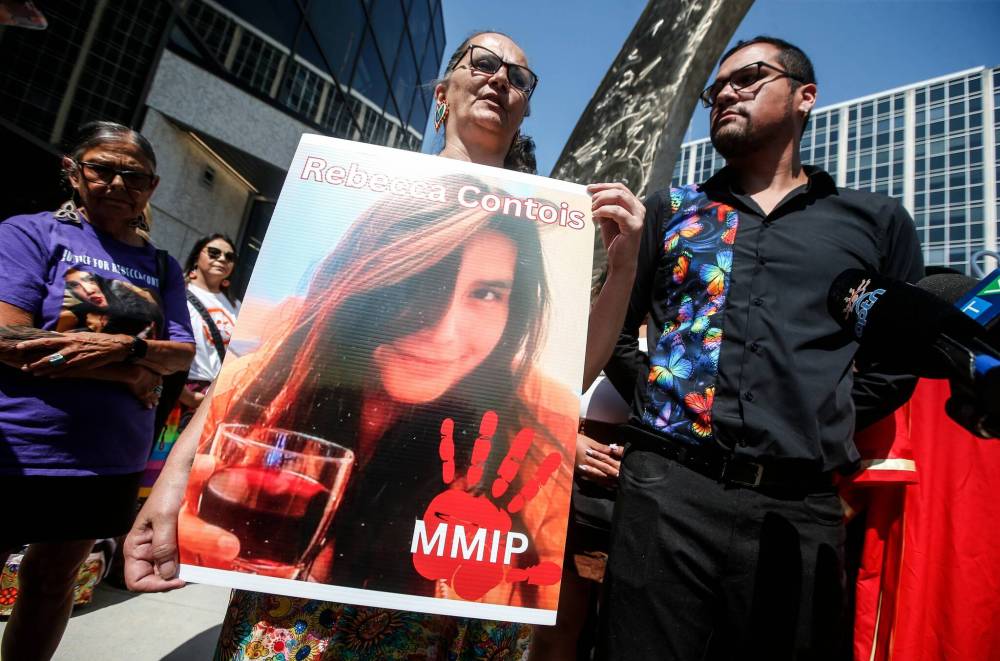
THE CANADIAN PRESS/John Woods
Krystal Fox and Jeremy Contois, brother of Rebecca Contois, react with joy outside the Manitoba Law Courts after the guilty verdict of serial killer Jeremy Skibicki is read in a courtroom in Winnipeg on Thursday.
Jorden Myran, the sister of Marcedes Myran, was able to hold back her tears in the courtroom.
“I feel like a weight has been lifted off my shoulders,” she later told reporters outside court. “Justice was served today.”
The trial was long and difficult, particularly the feeling of being near Skibicki in the courtroom, she said. She looked for “any bit of emotion” from him, but only found a cold emptiness in return.
“(It showed that) he’s guilty, and he doesn’t care,” she said. “And that if he was let (free) again, he would do it again.”
She will give a victim impact statement at a sentencing hearing that has yet to be scheduled.
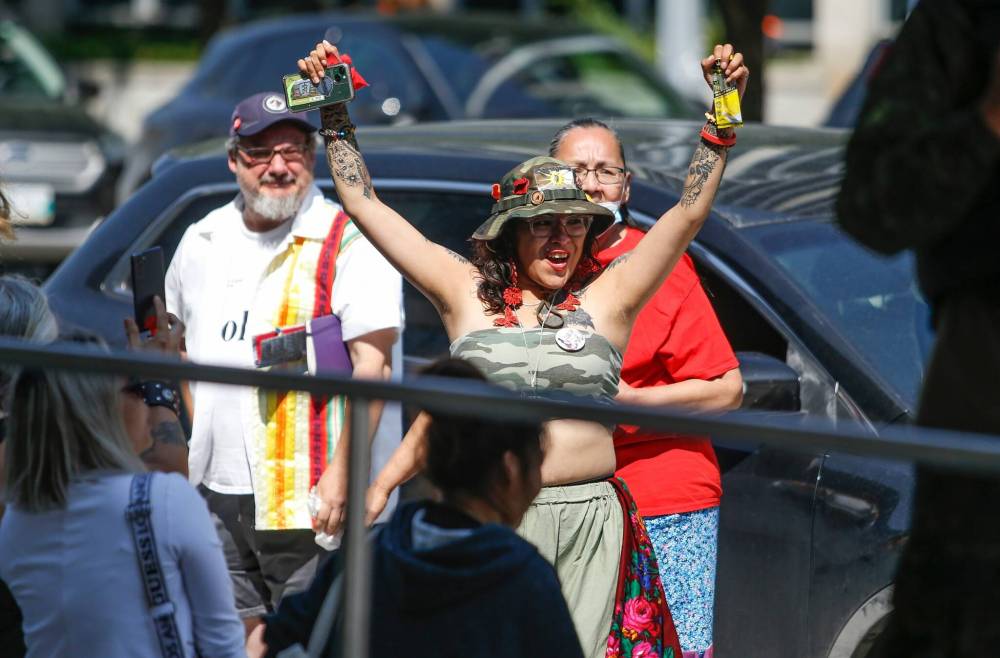
THE CANADIAN PRESS/John Woods
Families and supporters of the four murdered women celebrate outside the Manitoba Law Courts after the guilty verdict.
“He got what he deserved,” she said.
The verdict will have an effect on how cases involving missing and murdered Indigenous women are treated, Myran hopes.
“I think that it’s made a big statement. I think that we fought so hard and made such awareness to the big problem here in Canada,” she said. “So I think that it’s going to help immensely.”
Marcedes Myran’s grandmother, Donna Bartlett, was wheeled into the courtroom. She said the family’s work is not done.
“Next step is bring my girl home,” she said. “Even just a piece of her would be good. After what he did, a piece of her would be good.”
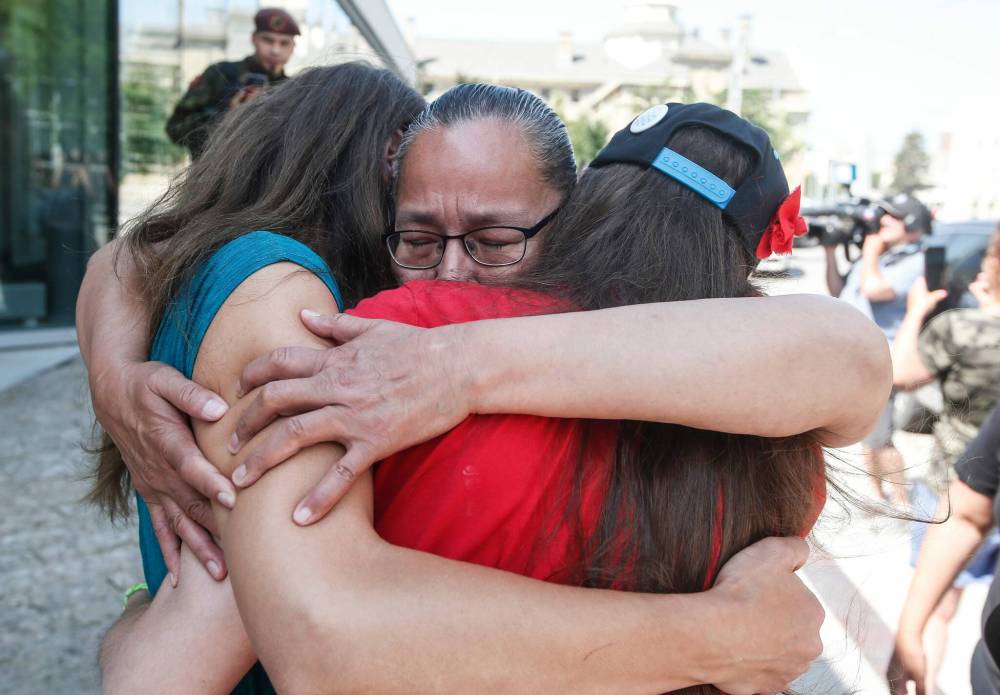
THE CANADIAN PRESS/John Woods
The judge determined Skibicki is guilty of killing Marcedes Myran, 26, Morgan Harris, 39, and Rebecca Contois, 24 and a fourth, unidentified woman.
“Everything will be towards searching the landfill now,” Jorden Myran said. “That’s the next chapter, and to just bring my sister’s remains home, the last bit of closure that we need.”
Outside court, Crown attorneys Chris Vanderhooft and Renee Lagimodiere thanked the organizations that supported the investigation and the families, and commended the families for their bravery.
“We know that this level of support is not always attainable, and that for victims of crime and their families, that the justice system may seem inaccessible,” Lagimodière said. “With the help of the people and organizations involved in this case, we believe that that can change.”
“They had every reason not to trust this system, and yet, they consistently showed us their grace and courage,” Vanderhooft said.
“And to the family of Mashkode Bizhiki’ikwe, you are not forgotten, and neither is your daughter,” he said.
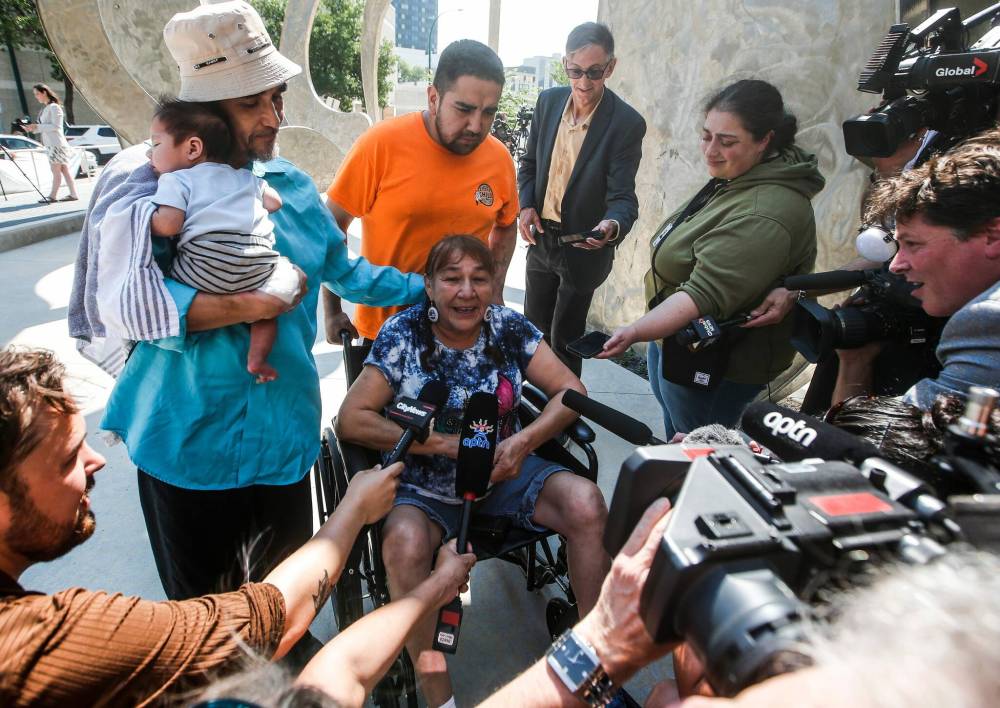
THE CANADIAN PRESS/John Woods
Donna Bartlett, grandmother of Marcedes Myran, speaks to reporters outside the Manitoba Law Courts after the guilty verdict.
Jeremy Contois, the older brother of Rebecca Contois, said he doesn’t understand why Skibicki killed the women.
“I wish I knew that… for me personally, I wasn’t satisfied by his reasons,” he said. “There’s always more to it.”
Some of Contois’s remains were found in a garbage bin behind a Winnipeg apartment building in 2022. She was a loving mother, sister, daughter and friend, whose loved ones saw her just two days before she was slain as they celebrated her birthday.
The family will now support relatives of the other victims who are waiting for a landfill search, and try to find closure.
“(Rebecca’s) looking down on us. I believe that she has a sense of relief.”
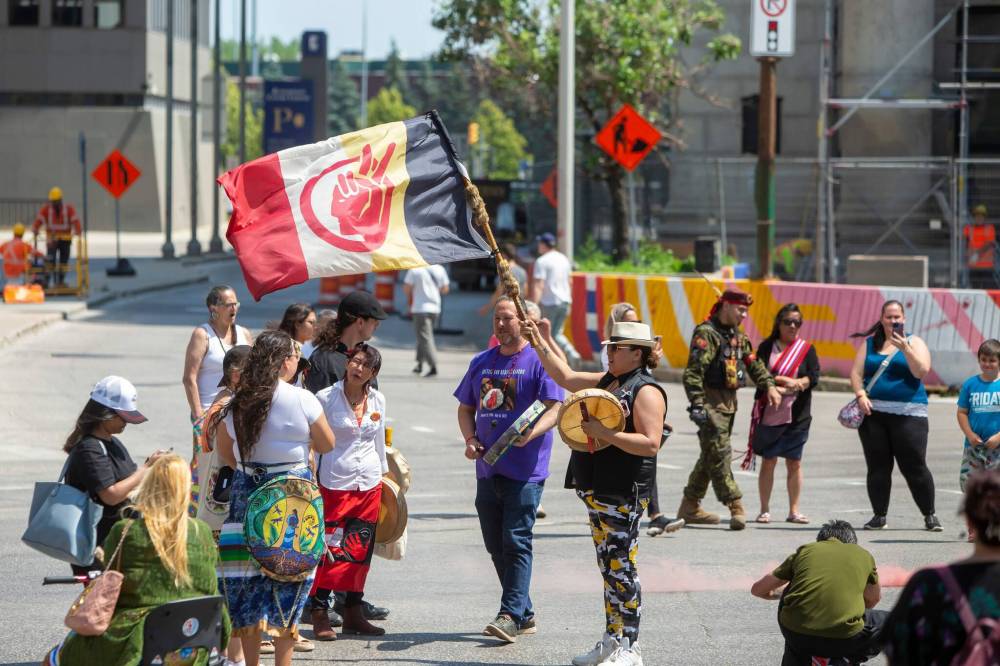
BROOK JONES / FREE PRESS
A woman holds an American Indian Movement flag and an aboriginal drum during a round dance at the intersection of Portage Avenue and Main Street Thursday afternoon.
Hours after the verdict, at 2 p.m., about 50 people blocked off Portage and Main to hold a round dance. Police were on site redirecting traffic as people wearing shirts and carrying signs with the victims’ faces and names prayed, sang and mourned.
Among them was Jessica Courchene, who had been Skibicki’s neighbour. Her father, Jeff Cohan, was one of several neighbours who testified against him during the trial.
“Not being related to the victims and the families but getting to know them on a personal level, and actually being able to see justice happen is so amazing, because I was terrified it wasn’t going to happen,” she said.
Courchene is Indigenous, from Sagkeeng First Nation, and said the case has weighed heavily on her heart.
“It’s really beautiful to see this come full circle. I’m happy for the families. I’m happy for the victims,” she said.
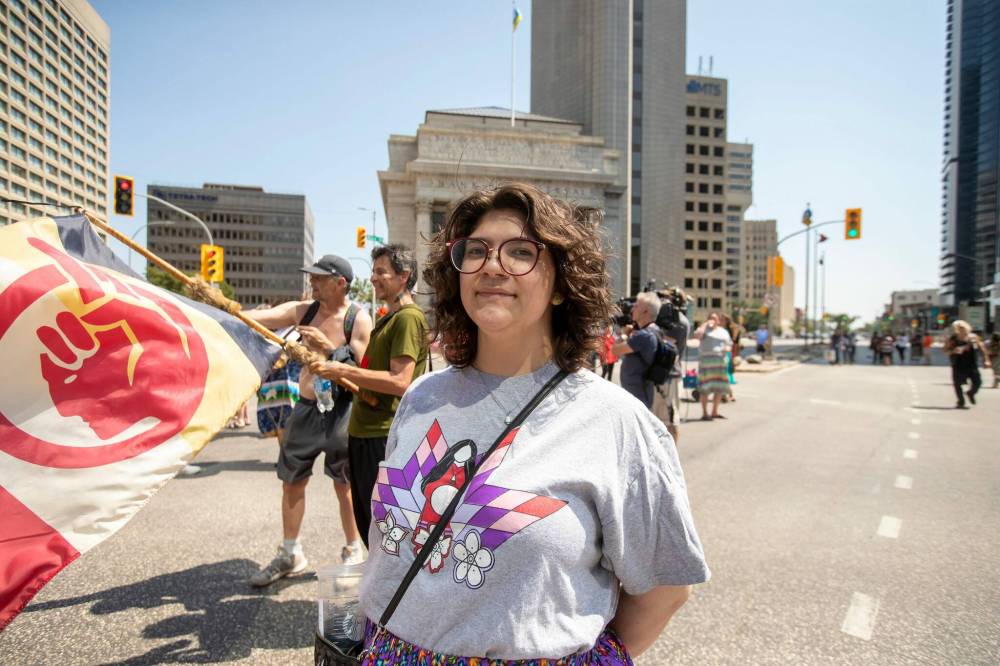
BROOK JONES / FREE PRESS
Winnipeg resident Jessica Courchene, who is from Sagkeeng First Nation, had been Skibicki’s neighbour. Her father was one of several neighbours who testified against him during the trial.
“It definitely starts a period of healing for everyone.”
malak.abas@freepress.mb.ca

Malak Abas
Reporter
Malak Abas is a city reporter at the Free Press. Born and raised in Winnipeg’s North End, she led the campus paper at the University of Manitoba before joining the Free Press in 2020. Read more about Malak.
Every piece of reporting Malak produces is reviewed by an editing team before it is posted online or published in print — part of the Free Press‘s tradition, since 1872, of producing reliable independent journalism. Read more about Free Press’s history and mandate, and learn how our newsroom operates.
Our newsroom depends on a growing audience of readers to power our journalism. If you are not a paid reader, please consider becoming a subscriber.
Our newsroom depends on its audience of readers to power our journalism. Thank you for your support.